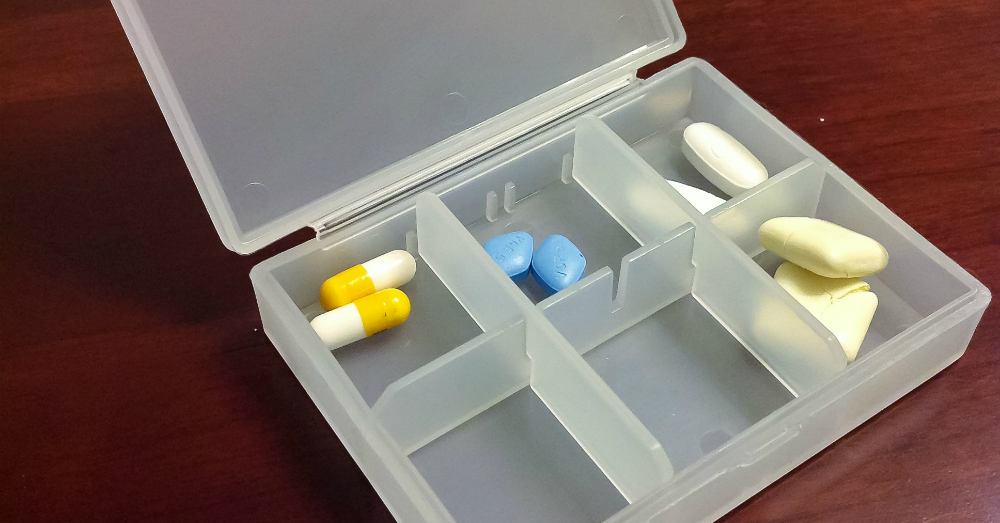Otilonium
- I. Introduction
- II. Uses of Otilonium
- III. How Otilonium Works
- IV. Dosage and Administration
- V. Composition
- VI. Common Side Effects
- VII. Uncommon Side Effects
- VIII. Interactions
- IX. Warnings
- X. Contraindications
- XI. Careful Administration
- XII. Important Precautions
- XIII. Over Dosage
- XIV. Storage
- XV. Handling Precautions
- XVI. Conclusion
I. Introduction
Otilonium is a medicine commonly used to treat bowel syndrome (IBS). It has calcium channel blocker properties, which help relieve symptoms like abdominal pain, bloating, and irregular bowel movements. It's essential to consult healthcare professionals for a diagnosis and to create a personalized treatment plan.
II. Uses of Otilonium
a. FDA-Approved Uses
- Otilonium bromide is an antimuscarinic and calcium channel blocker used to relieve spasmodic pain of the gut, especially in irritable bowel syndrome (IBS)1.
- The FDA (Food and Drug Administration) in the United States has not granted approval for otilonium bromide to be used in any way, as it is not listed in the FDA verification portal2. However, otilonium bromide is approved and available in other countries, such as India34.
- Otilonium bromide can reduce symptoms such as abdominal pain, bloating and irregular bowel movements in patients with IBS56. However, more clinical trials are needed to confirm its efficacy and safety7.
1: Otilonium bromide - Wikipedia 2: FDA Verification Portal 3: Otilonium Bromide: View Uses, Side Effects and Medicines | 1mg 4: Otilonium Bromide - Uses, Dosage, Side Effects, Price, Composition - Practo 5: English | World Gastroenterology Organisation 6: Otilonium Bromide (International database) - Drugs.com 7: Effect of herbal extract granules combined with otilonium bromide on diarrhoea-predominant irritable bowel syndrome: study protocol for a randomised controlled trial | BMJ Open
b. Off-Label Uses
- Otilonium is used for managing intestinal pseudo obstruction, a syndrome characterized by signs and symptoms of a mechanical obstruction of the intestines in the absence of an anatomic lesion123.
- Otilonium is also a smooth muscle relaxant that interferes with calcium ions mobilization and reduces intestinal smooth muscle contractility456.
- Otilonium may have additional applications such as reducing muscle spasms in other smooth muscles, but this is not officially approved or well-studied7.
1: Chronic intestinal pseudo-obstruction: Etiology, clinical features, and diagnosis - UpToDate 2: Chronic intestinal pseudo-obstruction: Management - UpToDate 3: Symptoms & Causes of Intestinal Pseudo-obstruction - NIDDK 4: Octylonium bromide: a smooth muscle relaxant which interferes with calcium ions mobilization. - Europe PMC Article - Europe PMC 5: IBS and the role of otilonium bromide | SpringerLink 6: Smooth Muscle Relaxants | SpringerLink 7: Irritable Bowel Syndrome Therapeutic Has Broad-Spectrum Antimicrobial Activity - Europe PMC Article - Europe PMC
III. How Otilonium Works
The medication works based on its ability to reduce muscle spasms. It primarily affects the muscle cells in the digestive system. This interaction helps to prevent calcium ions and neurotransmitters, which play a role in muscle contraction and spasms, from being active.
IV. Dosage and Administration
a. Recommended Dosage
The dosage for adults might differ depending on the severity of their symptoms after consulting with a physician. It may be necessary to adjust the dosage for specific situations.
b. Methods of Administration
Otilonium is generally found in the form of tablets that are taken orally. It is crucial to follow the dosage accurately to achieve the desired therapeutic benefits.
Administration to Elderly
Elderly individuals may need to have their medication doses adjusted. It should be carefully observed because there could be changes in how the body processes the drugs.
Administration to Pregnant Women and Nursing Mothers
Taking Otilonium during pregnancy and breastfeeding is generally not advisable unless specifically instructed by a healthcare professional. This is because there may be risks to the mother and the developing baby.
Administration to Children
It is generally not recommended to administer the drug to children unless a pediatrician specifically recommends it due to age-related limitations and physiological factors.
V. Composition
It is crucial to have an understanding of the makeup of Otilonium in order to use it effectively and safely. The active components play a role, in its effects while the inactive ingredients act as additives.
VI. Common Side Effects
Some of the side effects that people have experienced include dry mouth, dizziness, and blurred vision. The intensity of these side effects can vary, ranging from mild to severe.

VII. Uncommon Side Effects
Rare,. Serious adverse effects require prompt medical attention. These can include reactions and severe abdominal pain. If any of these symptoms occur, it is crucial to seek medical assistance.
VIII. Interactions
Drug-Drug Interactions
The effects of Otilonium can be affected by its interactions with medications. It is essential to note the following; When taken with antacids, the absorption of Otilonium may be hindered, potentially reducing its effectiveness as a treatment. Combining Otilonium with antispasmodic drugs may result in a more substantial combined effect increasing the chances of experiencing adverse reactions.
Drug-Food Interactions
It's essential to consider how Otilonium interacts with food and drinks. For example, Alcohol impact; Drinking alcohol while taking Otilonium may enhance its effects so it's essential to be cautious when consuming them together. Caffeine impact: The stimulating effects of caffeine could potentially counteract some of the properties of Otilonium.
IX. Warnings
Please take note of the following recommendations to minimize health hazards: 1. Be aware of allergic reactions; Symptoms could include a rash, breathing difficulties, and swelling. It is crucial to seek medical assistance if you experience these symptoms. 2. There is a risk of drug abuse or dependence. Although uncommon, it is essential to strictly follow the prescribed dosages to avoid developing dependency on the medication.
X. Contraindications
Otilonium may not be suitable for everyone as there are scenarios where its use is contraindicated. These scenarios include obstructions and myasthenia gravis. It's essential to be cautious about drug interactions that could lead to contraindications, as cross-reactivity with other medications may increase the risk of adverse effects.
XI. Careful Administration
It is crucial to have management to achieve the best results from treatment. This includes Keeping track of liver and kidney function. These factors may influence the need for adjusting dosages. Considering patients with heart problems, monitoring them to prevent any worsening of their cardiac conditions is essential.
XII. Important Precautions
Before starting any treatment, you must inform your healthcare provider about your history, the medications you're currently taking, and any allergies you have. This is crucial for ensuring the administration of the medicine. Additionally, it's necessary to undergo tests and regular monitoring to assess the drug's effectiveness and detect any possible side effects at an early stage.
XIII. Over Dosage
Overdosing can have consequences. It's important to stay vigilant for signs of overdose, such as drowsiness, rapid heart rate, or low blood pressure. If an overdose occurs, seeking medical help is crucial. Treatment options may include lavage and specific interventions to address the symptoms.
XIV. Storage
It's essential to store the drug so that it stays effective. Specifically, it should be stored away from sunlight and moisture at room temperature. It's crucial to follow the expiration date to make sure that the drug remains potent.

XV. Handling Precautions
To ensure proper medication use, it is essential to follow these guidelines: 1. Practice handling: wash your hands before and after dealing with the medication. 2. Keep medication out of reach of children; Store it in a place to avoid any accidental ingestion. Taking these precautions will help promote the effective utilization of drugs.
XVI. Conclusion
To put it simply, Otilonium is an option for treating IBS and has various other uses. However, it's important to remember that using it requires medical guidance to create a treatment plan that suits your specific needs. It's always recommended to consult with a healthcare professional for a diagnosis and personalized treatment for your condition.












